Mihály
Miklós and Zsófia Szinek have been known among sourdough circles
and restaurant-goers
in Budapest for some
time, because it was back in
2010 that they
started making artisanal bread when fine-quality
sourdough was a novelty in the Hungarian capital.
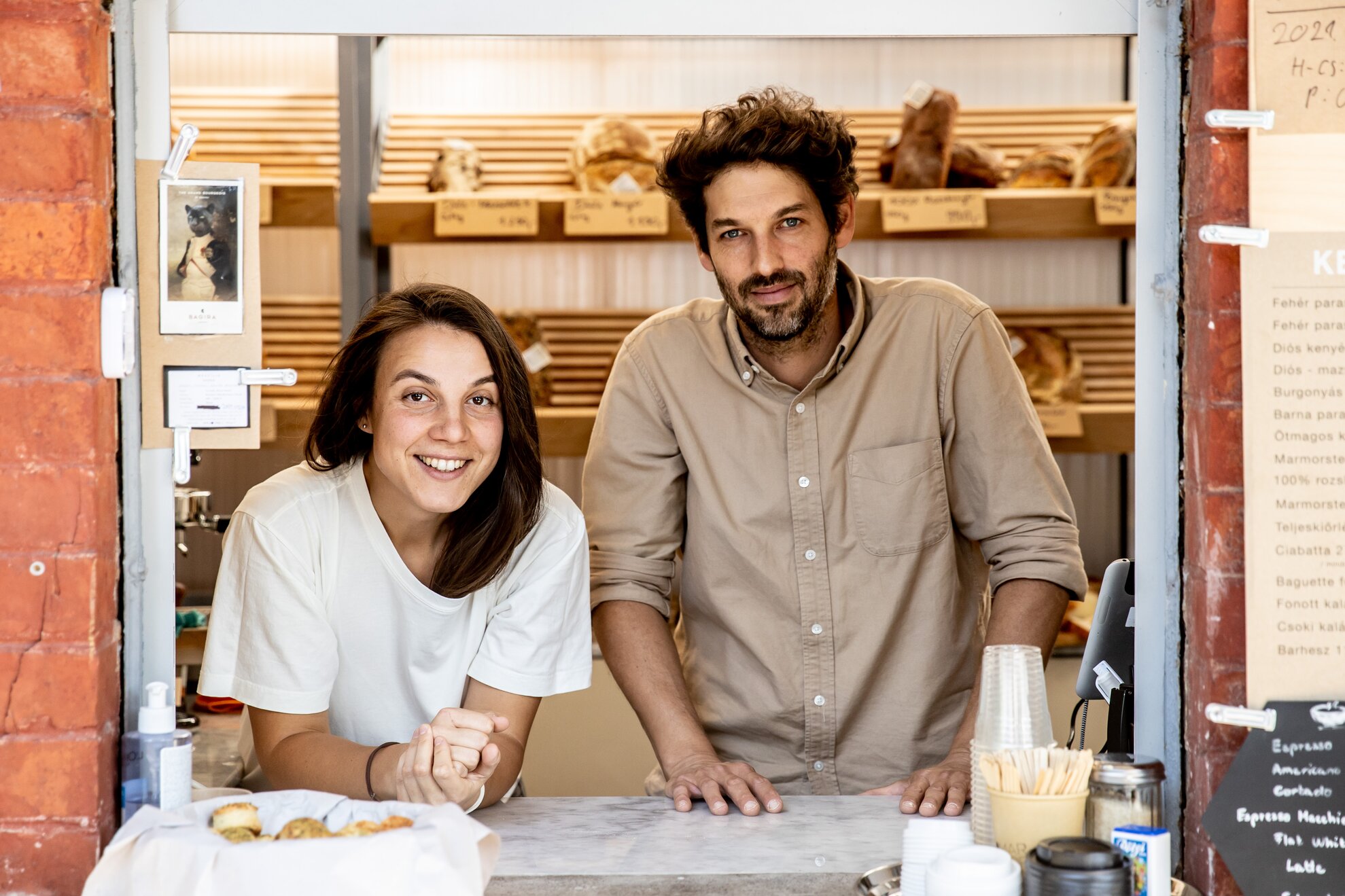
Fortunately, the situation has changed radically since then, with more and more decent bakeries opening up. Zsófi and Misi not only keep pace with this growing community, but also take part in shaping it.
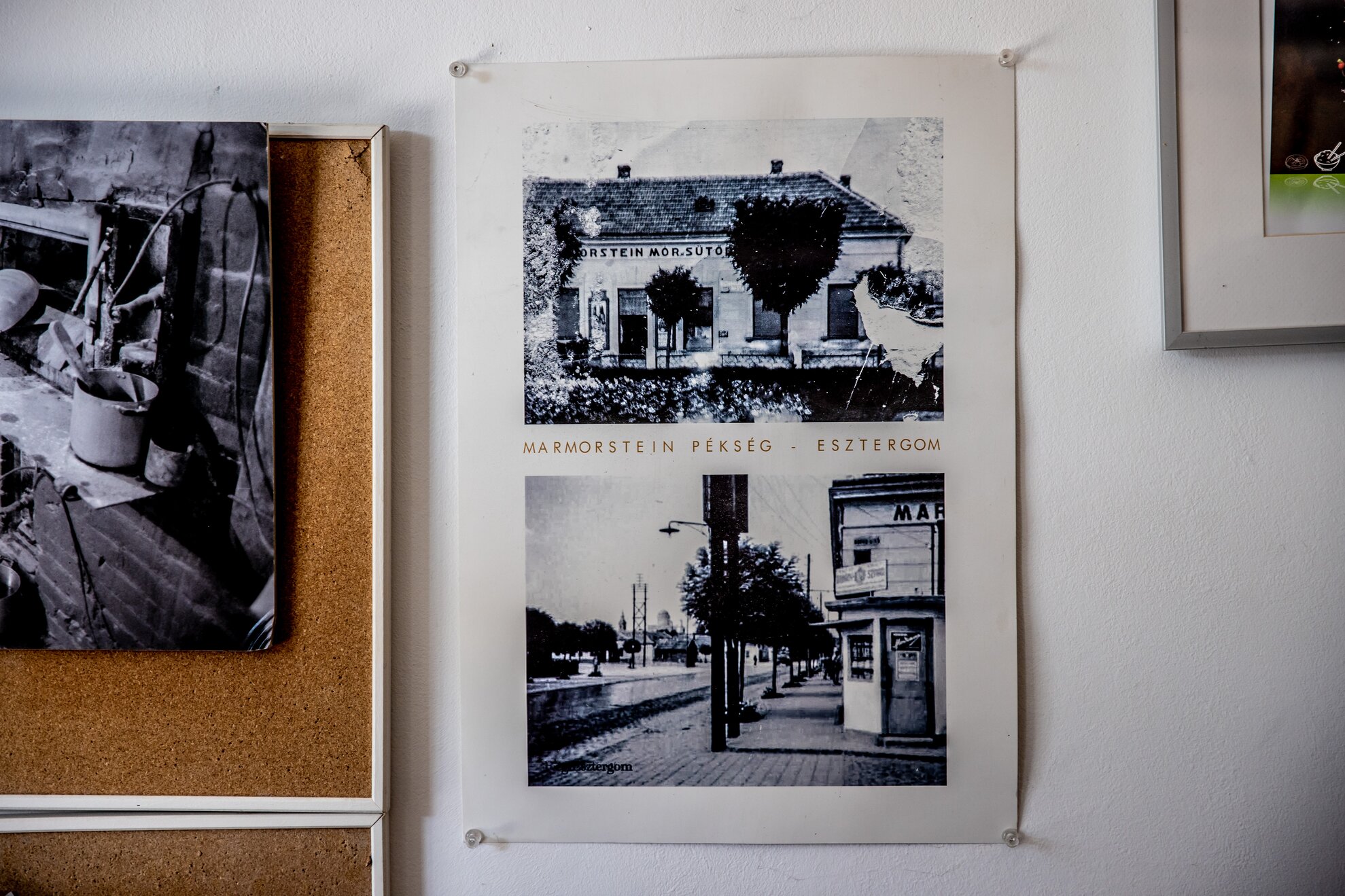
By chance, Misi’s grandfather had a bakery in Esztergom. This first store was actually called Marmorstein, but this isn’t a standard story of respecting tradition and a granddaughter carrying on a family profession.
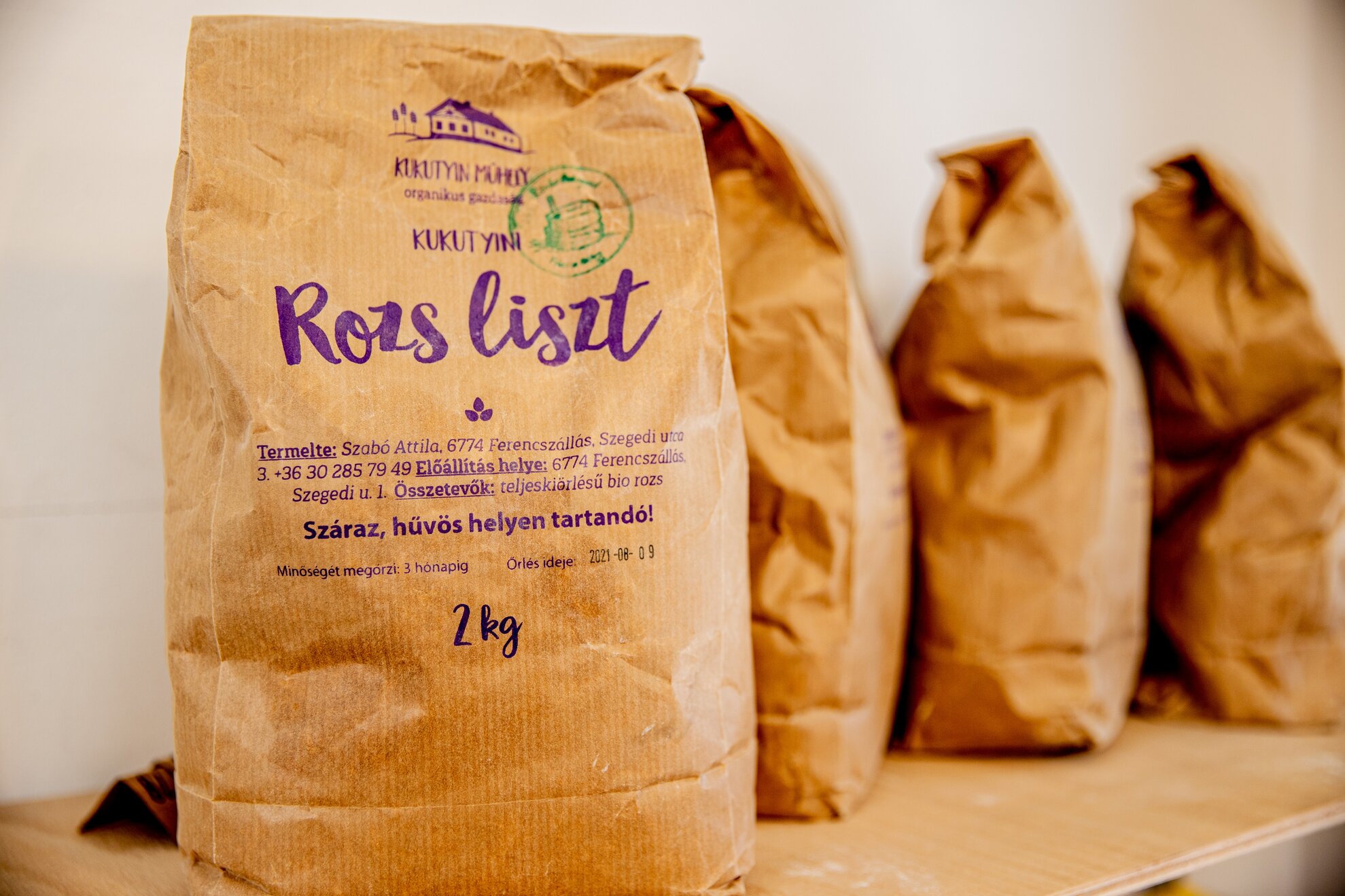
Misi simply wanted to eat good bread in restaurants, and it seemed the best option would be if he baked it. Since the business started with supply in mind, they hadn't opened their own place up until now.
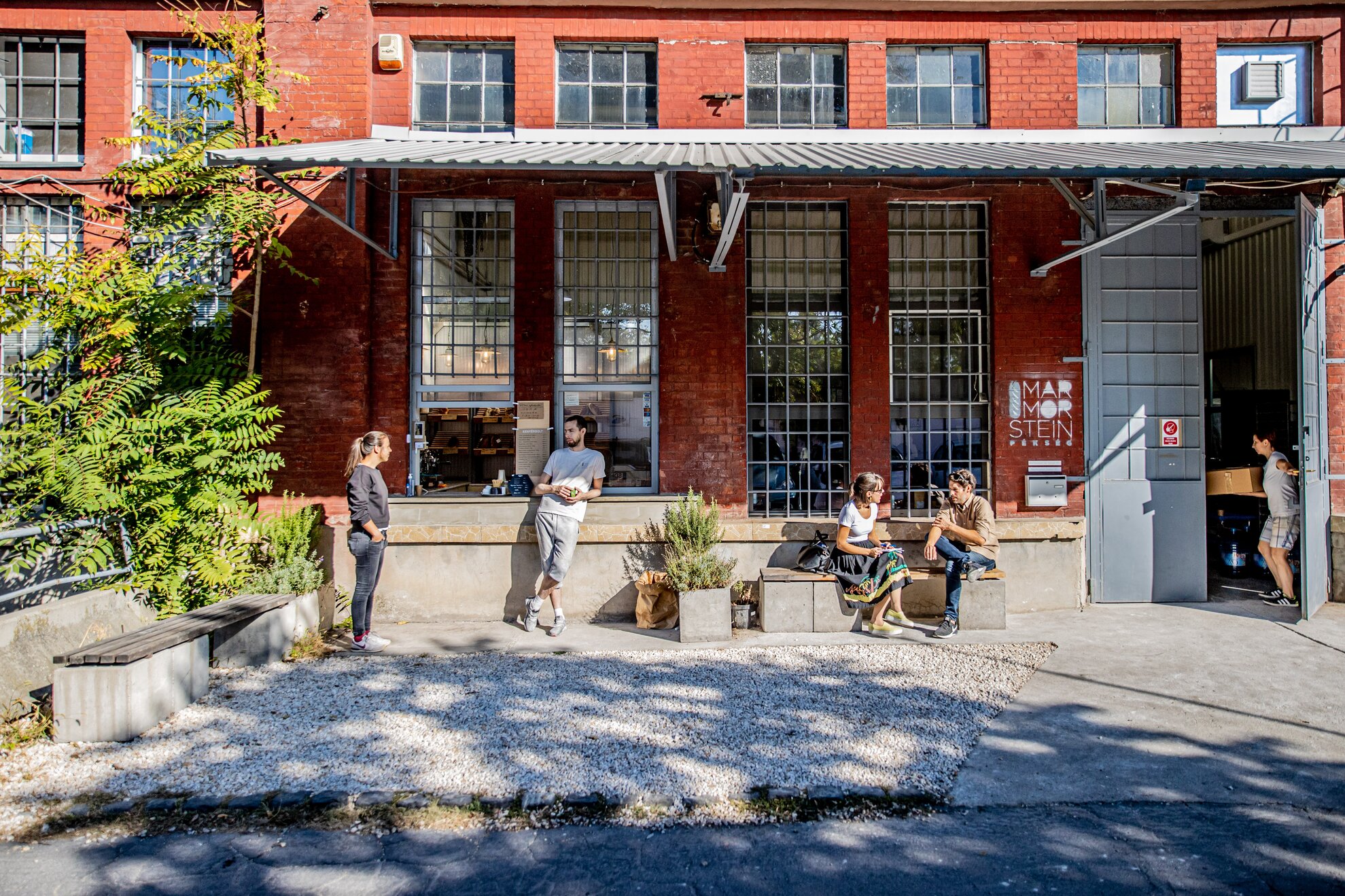
At first, the factory surroundings of Budafoki út seem a surprising choice of location – who is going to buy bread here? But then you quickly notice the advantage of sitting at a comfortable before the vast windows with a Bagira coffee latte and cake from Pékköztársaság. However, that’s just one side of the story. You can also buy fresh Marmorstein bread over the counter.
The
eternal favourite,
walnut-raisin bread (HUF
1,290), doesn’t
require butter, because it’s
only half sourdough, the rest
raisins and walnuts, so it
most resembles an unusual,
rustic fruitcake, ideally
accompanied by a milky coffee for the perfect breakfast.
Potato
bread
(HUF 600)
and the five-seed rye loaf (HUF
850) are also
delicious, in which the bitter taste of the seeds is offset by the
flower honey, while
the rye bread (HUF 990)
contains 100% rye, which
its sourdough is also made from. In addition to the specialities,
you can also find the standard
white and brown peasant’s
bread (HUF 590/680
for half a kilo),
and cake made from the eggs of free-range chickens,
with yeast (HUF 930).
How
it’s all made is another
matter. The present workshop
on Budafoki út has been in
production since 2015, and currently employs
17 people in a
convivial,
good-natured team, together with Zsófi and Misi. Of these, six
are bakers, the rest deal
with deliveries
and admin.
While
production has been
solved with only one
night shift a week, the life of the bakery workers is still
no cakewalk, though
the results
of their labour
is high-quality bread.
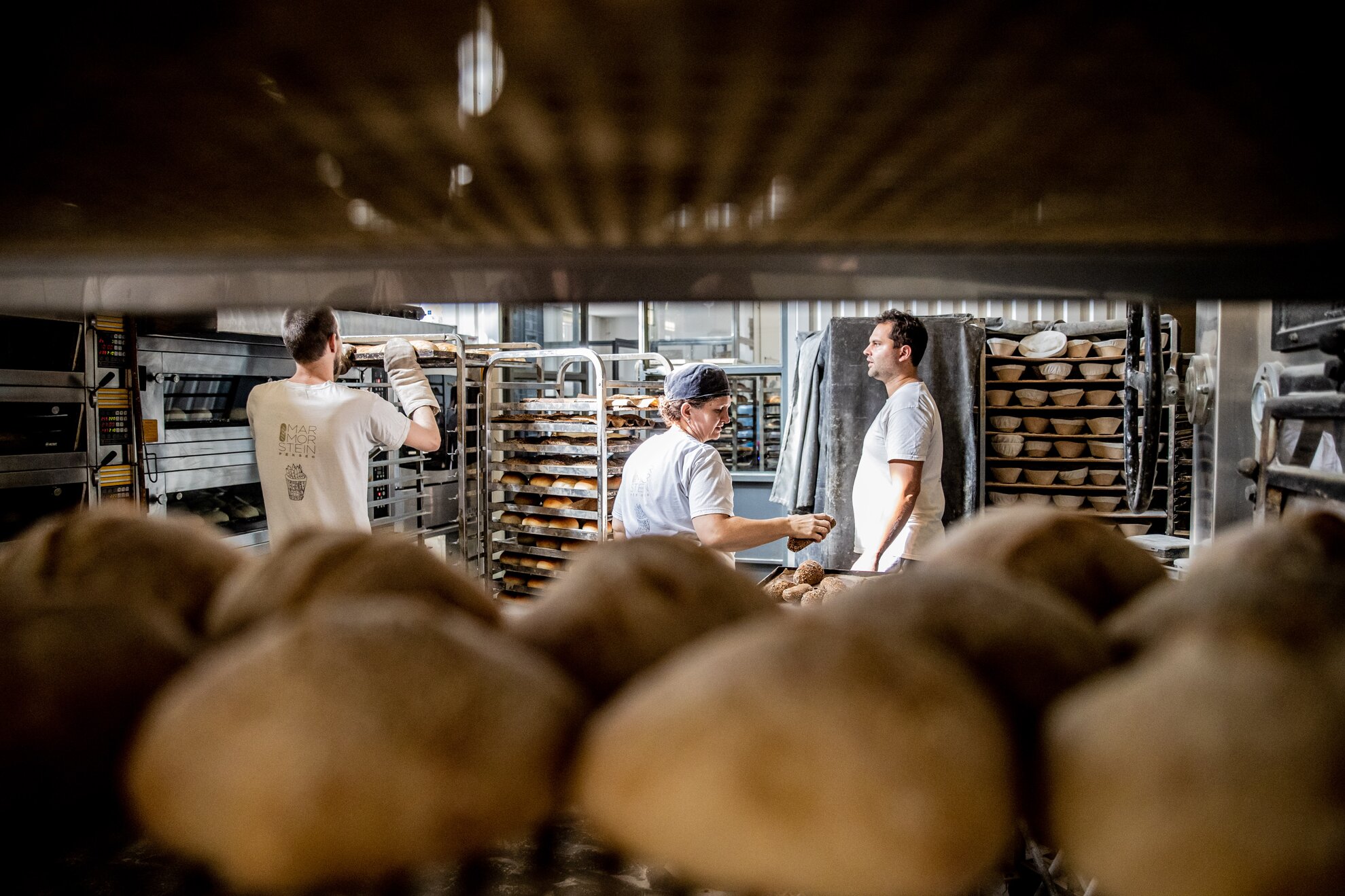
In
order for shoppers
to find
fresh Marmorstein bread in stores between 10am and noon
the next day, work starts here at 10am the day before. Although artisanal
baking
is a common term, it’s actually a slight
misnomer as
it refers to a
slow-leavening bakery made with natural sourdough.
With this kind of process, the natural proportion of lactic acid bacteria and yeast may have a
longer fermentation time. Otherwise, the process only works properly
if the bacteria and fungi in the leaven work
for a long time, so they can absorb what they need
from the flour, so the better the raw material, the longer the dough
can rise.
And the longer the fermentation lasts, the tastier,
more durable and healthier the baked
goods. At
Marmorstein, this period is usually drawn
out, and their breads rise
for 12 to 14 hours.
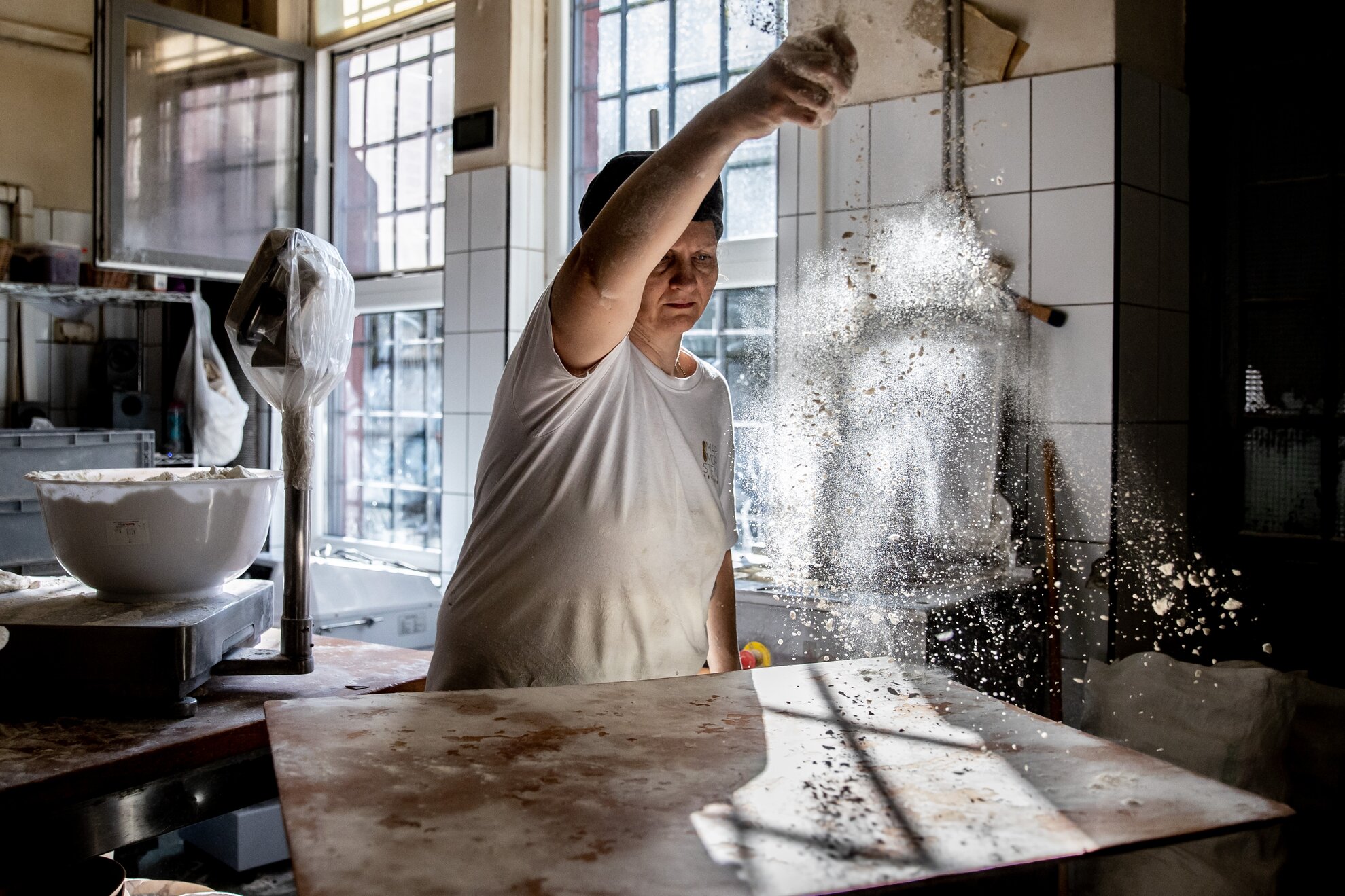
In the huge kneading area, they start assembling the doughs towards ten in the morning. These are then left to one side for two hours, followed by dispatch and division. Of course, this no easy process – meticulous work and a lot of experimentation are required to calculate how the loaves will be the right size. For a half a kilo of bread, for example, you should divide the dough into portions of 580 grammes, which then lose water during baking.
From here, the split dough is placed in a kneading basket and then in a cold room for 12 to 14 hours, where the fermentation gradually slows as the yeasts lose their viability.
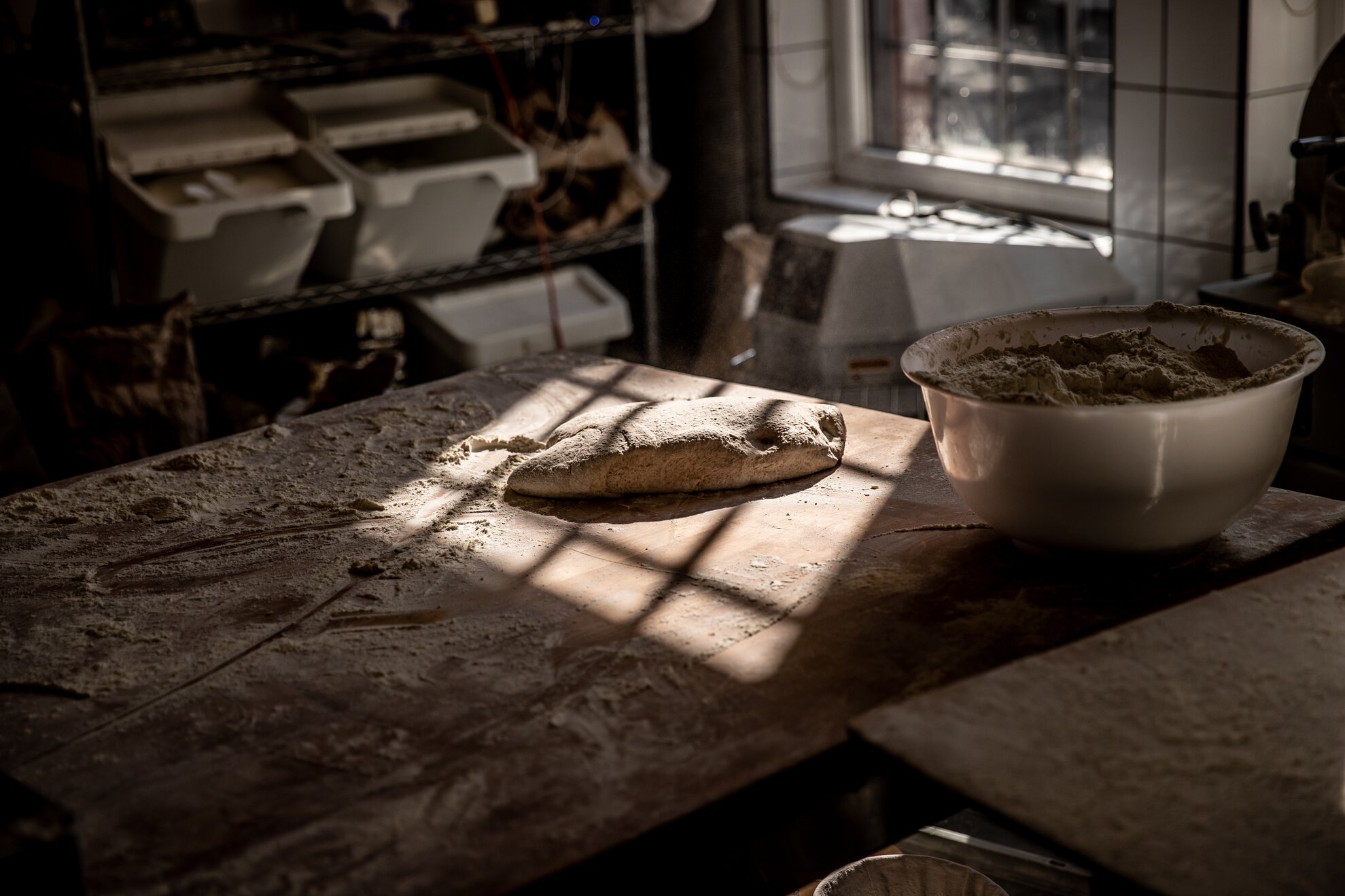
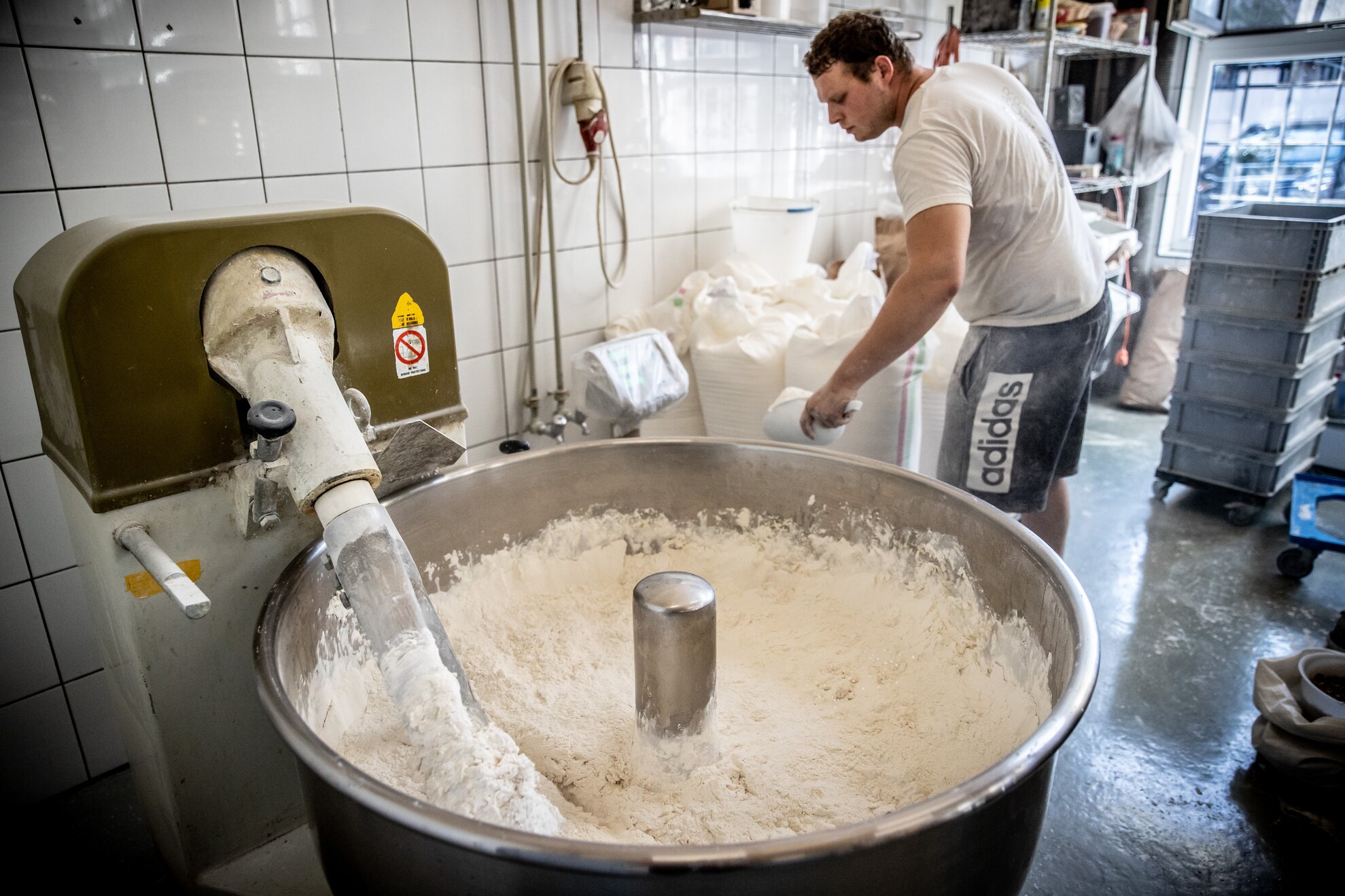
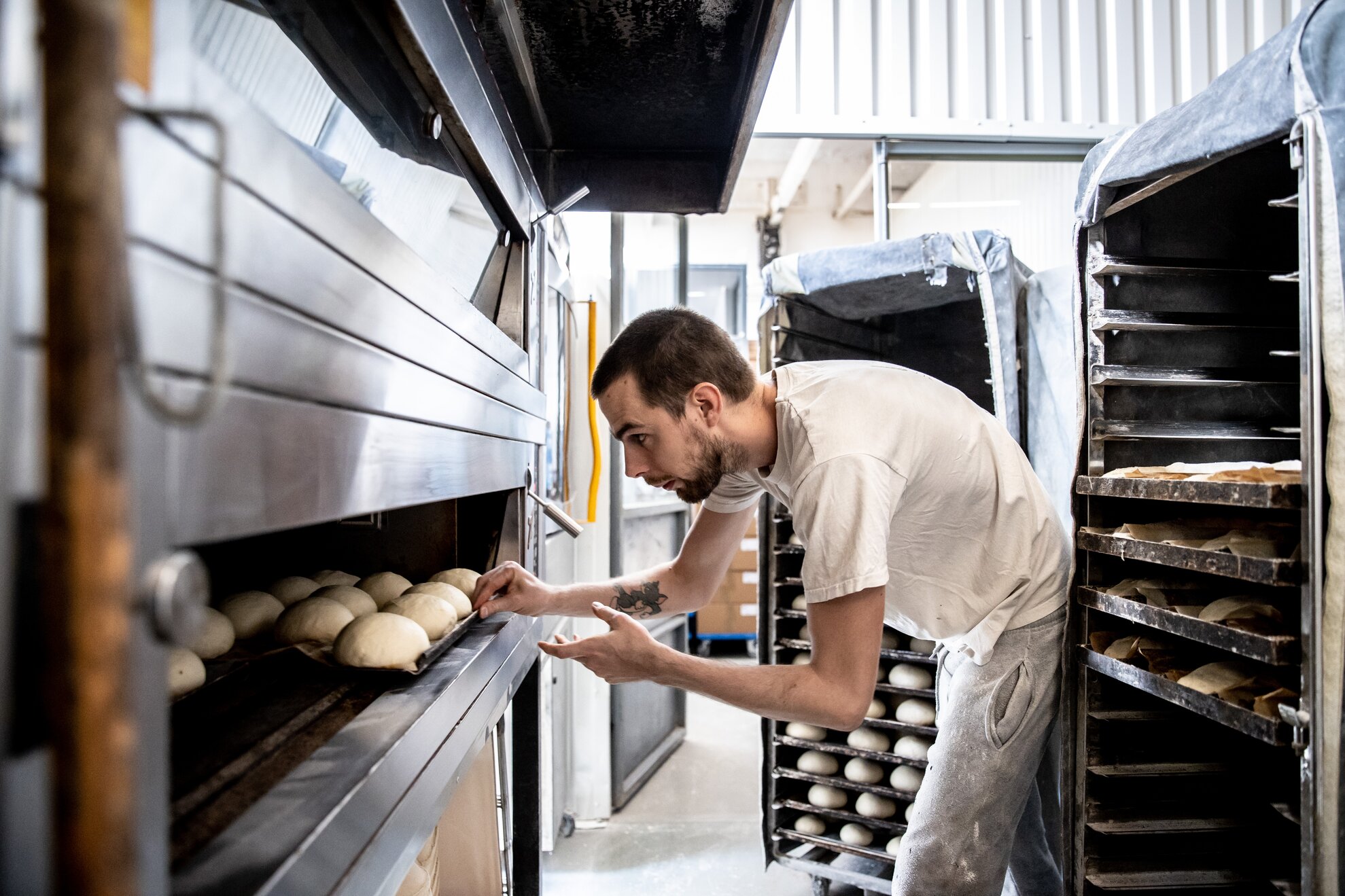
The sourdough shopper is still asnooze when Marmorstein’s bakers start baking the breads prepared the day before. Of course, each process runs in parallel after a given point, and the baking times also differ. Most start at four in the morning, but some types of bread are already being prepared during the day, and the oven does not cool down until the next night. It’s even lukewarm when it’s restarted.
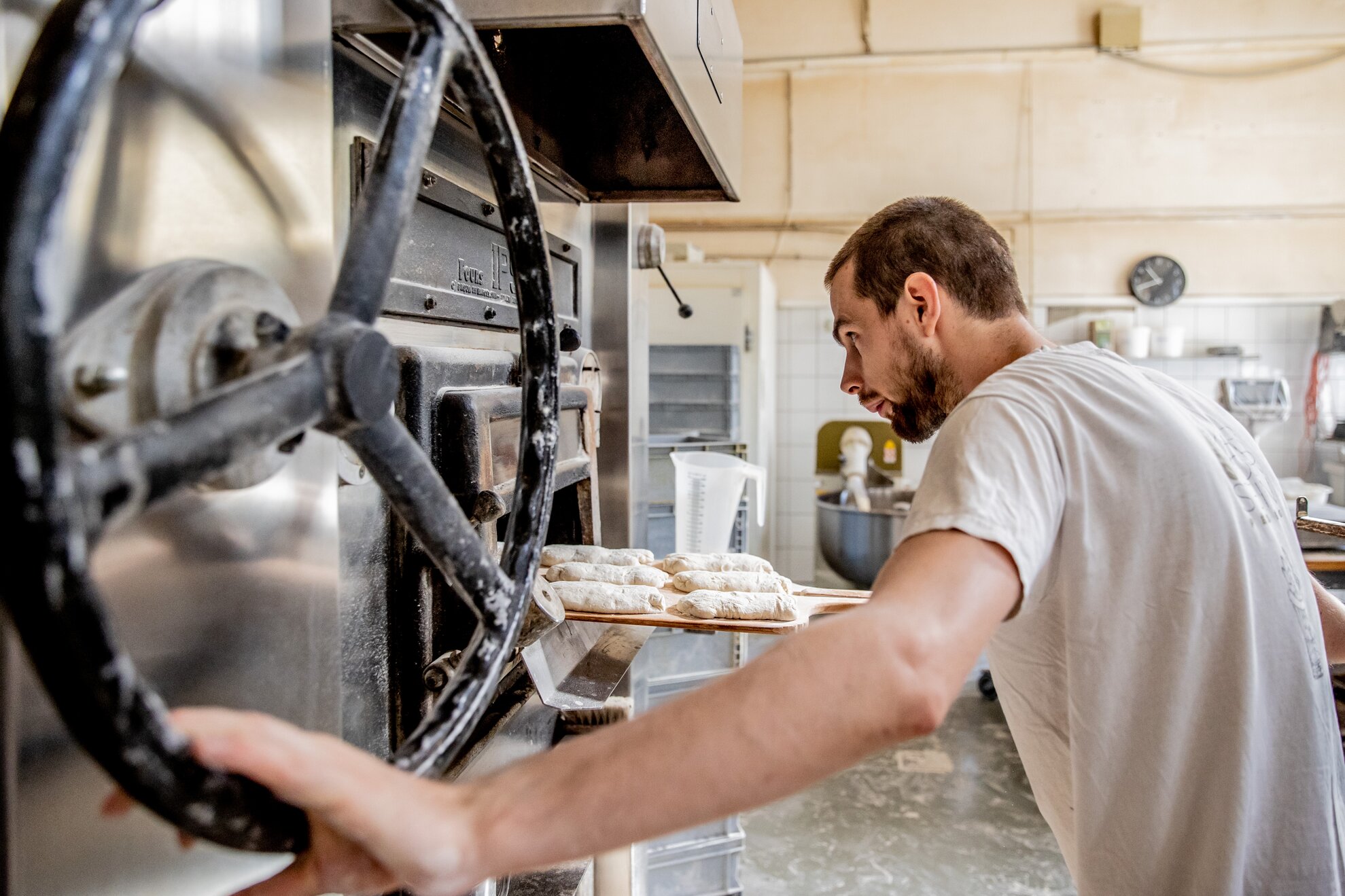
Marmorstein uses a special, rotating, wood-fired oven, the predecessor of which was made by Misi’s father-in-law. The current one, on the other hand, came from Spain and was assembled by an elderly Spanish master with two of his assistants from the raw materials they brought. Its bricks were only burned to 80%, so the oven was formed during the first bakings.
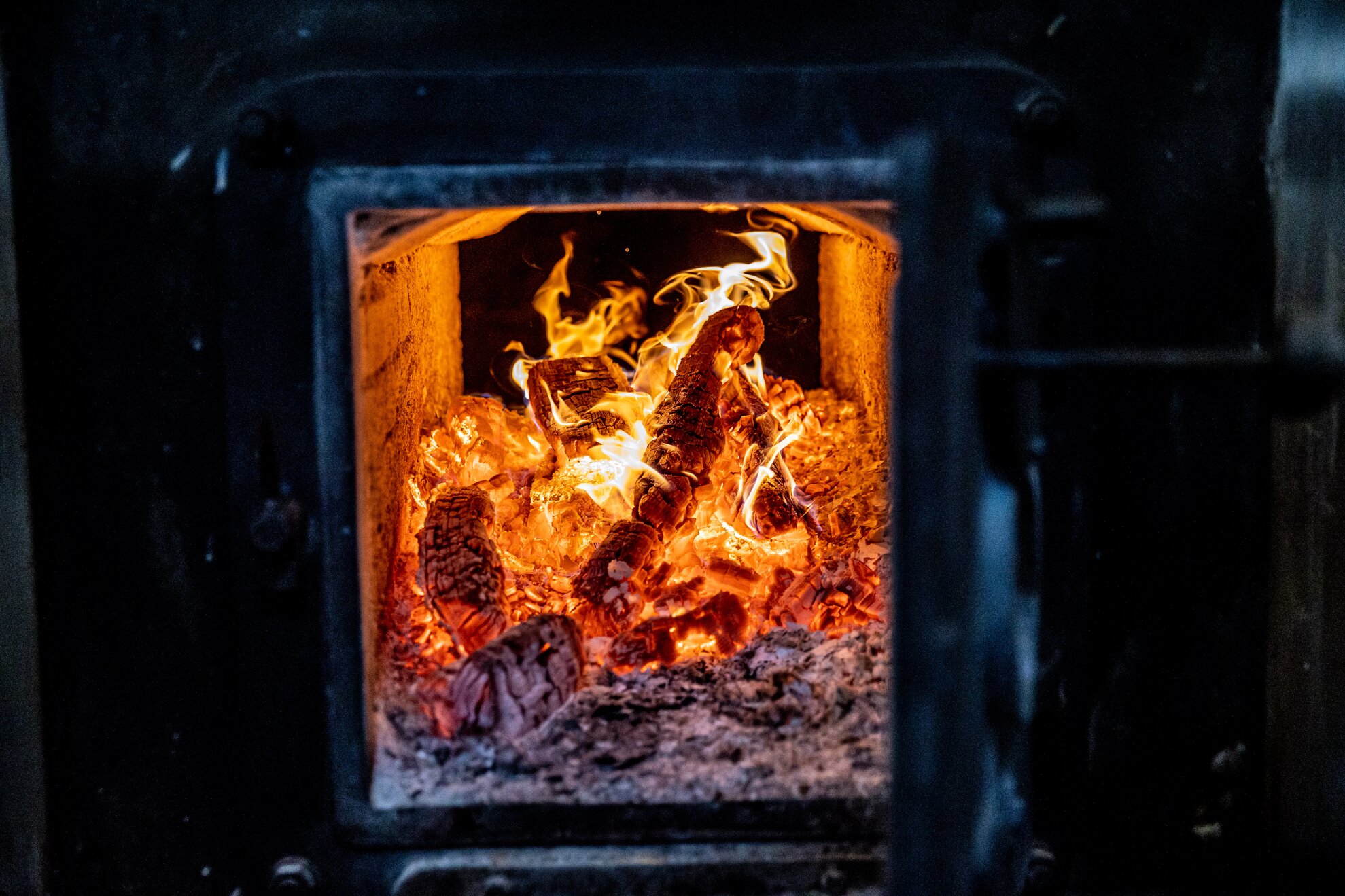
With the finished breads, the first truck will leave at 9.30am, when the working day has only just started for many. The Marmorstein Bakery currently delivers to 22 bakeries and about 70 major partners outside its own store, with fresh bread arriving in stores by noon. And in the afternoon, they deliver to the places that order the products frozen and bake them locally.
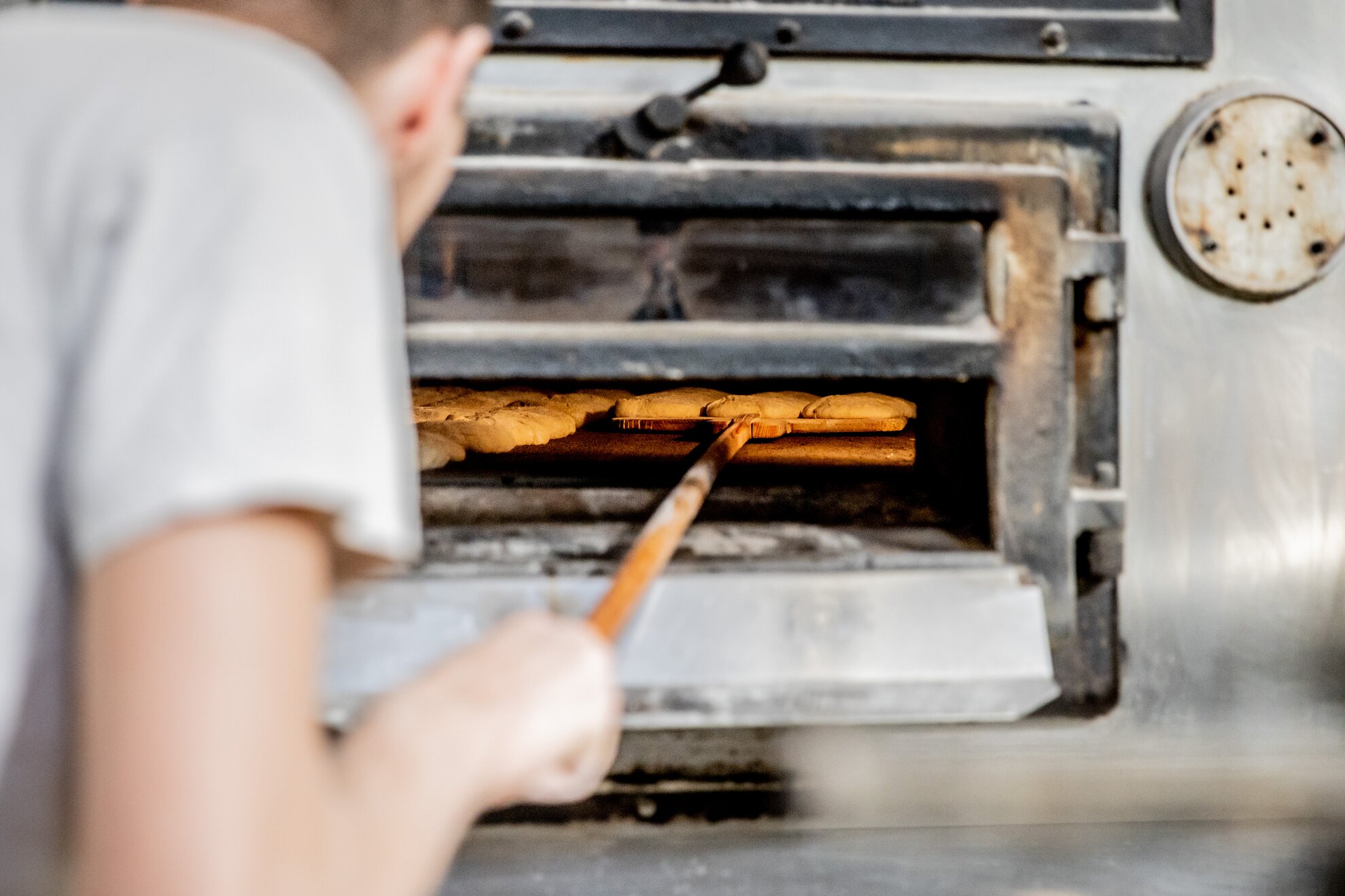
Saturday differs from the schedule, as due to the early closures on Sunday, they still work night shifts, allowing them to only deal with preparation on Sunday. Despite this rigorous routine, there’s still time to experiment – vegan scones are currently in preparation…
Venue information
Marmorstein Bakery
1117 Budapest, Budafoki út 111-113
Facebook
Instagram
Open: Mon-Thur 8.30am-4.30pm, Fri 8.30am-8pm




